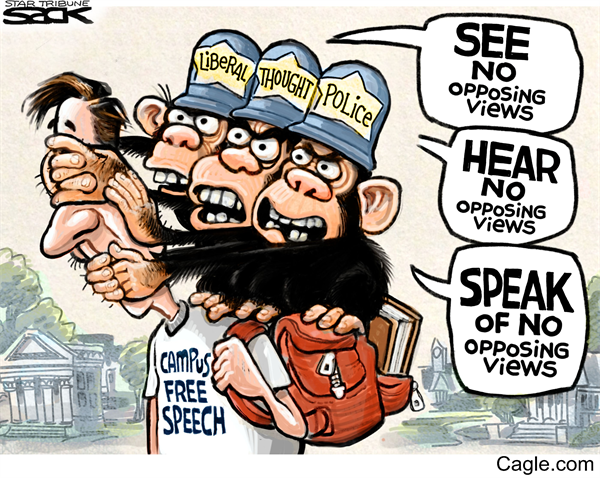It is difficult to be a person with moderate political views on the UA campus.
If I am sitting in class and the discussion turns to politics, a tension grows inside of me. Generally, these discussions become a mob of left-leaning students agreeing with each other passionately. There is nothing wrong with that.
What is a problem, though, is that sometimes I want to dissent. I know that if I do, though, my opinion will not be attacked, but my character will be.
I have experienced this countless times, and I have seen others go through this chilling personal degradation, too.
Living on campus, I have seen extensive talk on inclusivity. We should strive for an inclusive political environment. If students are able to take action and make this choice, we could revolutionize modern politics and create a model that the rest of the nation strives for.
Related: Gov. Ducey’s call for a convention of the states won’t fix the issues our nation fixes
If this is a bit too optimistic, we could at least create an atmosphere where all students feel safe to share their thoughts and where they know their thoughts will be valued by their peers. Moderates can lean right or left. A major characteristic of us, though, is that we find logic in the arguments of both sides.
The day after the election, I sat in class and a person in front of me was talking about how everyone who voted for Donald Trump was racist or misogynistic. Now, I voted for Hillary Clinton myself and volunteered for her campaign, but I had friends who had good reasons for voting for Donald Trump. I made that point in class. All around, though, people became infuriated, and they came at me, telling me why my point was inherently wrong. Their tone was laced with the idea that I was unintelligent for thinking differently than my peers.
Attacks on the moderate point of view hurt our peers in a tangible way. Moderates want to have good conversations about politics, but they cannot. Because of this, sometimes it is difficult to find moderates, even though they are out there in number. It’s not that the point of view does not exist but that they’re quiet.
It is easy to become fired up for a political ideal that is not centrist. People are passionate about their ideals, and this passion can easily overcome the calmness that characterizes many moderates. It is important not to mistake a passionate opinion for a merited one. Groups outside of the university forget this, too.
Moderate views have little representation in the media because they do not get people excited, nor do they have a lot of representation in government because the political base for moderates is less passionate than for idealists further from the center of the spectrum. All of this leads to moderates feeling unimportant politically, and this feeling is reinforced in discussions on campus.
Related: Fake news is changing the new media landscape
We can solve this isolation if we are able to re-incorporate political moderates into the conversation.
Last semester, the Honors College hosted a presentation talking about the importance of political conversation across the aisle. A study was presented that showed a trend that people from right and left political ideologies shifted to the middle after a respectful conversation with the other side.
If moderates and the political left can be reconciled and speak together civilly, both groups will learn from each other. We will enter the workforce with the ability to talk to other people and with knowledge of other points of view. We will learn how to handle arguments we do not agree with without suppressing the voice of the other party.
This takes effort from both sides. To my progressive classmates: I ask that you not immediately try to shut down the arguments of your moderate peers; instead listen to what we have to say. You do not need to agree, just respect our opinions. We moderates cannot quake at the idea of being disagreed with. We must continue sharing our opinions, even if others are less open to them than we would like.
Follow Toni Marcheva on Twitter.









